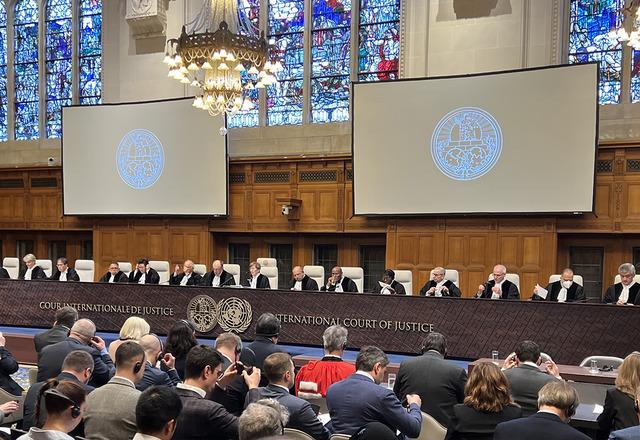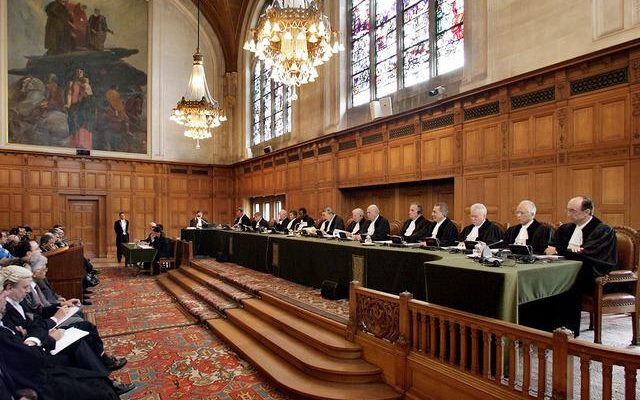The International Court of Justice (ICJ) announced the schedule of oral presentations in the advisory opinion regarding the legal consequences of Israel’s practices in the occupied Palestinian territories, including East Jerusalem.
Accordingly, 52 states, including Turkey, as well as the Arab League, the Organization of Islamic Cooperation and the African Union, will each make thirty-minute oral presentations between 19-26 February.
While the oral statements will begin with the presentation of Palestine on February 19 at 12:15 CET, the hearings will end with the last oral statement made by the Maldives on February 26 at 16:00 CET.
Turkey’s oral statement regarding the legal consequences of Israel’s practices in occupied Palestine will be made on Monday, February 26, between 12:00-12:30 CEST.
ADVISORY OPINIONS ARE NOT BINDING
The main duties of the Court include resolving legal disputes that arise between states in accordance with international law and providing advisory opinions on legal matters referred to it.
In this matter, the ICJ will give a non-binding advisory opinion on the legal consequences of Israel’s policies and practices in occupied Palestine, upon the request of the UN General Assembly.
Hearings of the International Court of Justice, which will be held open to the public at the Hague Peace Palace, will be broadcast live.
While it was seen for the first time that so many states submitted written and oral statements to an advisory opinion before the Court, it was noteworthy that Israel, which made a written statement, did not take part in the oral hearings.

IT’S DIFFERENT FROM THE CASE IN WHICH ISRAEL WAS TRIALD ON THE ACCUSE OF GENOCIDE
The advisory opinion of the ICJ, which will hear the oral statements of 52 states and 3 international institutions between 19-26 February, is not related to a disputed case between two states, unlike the case filed by South Africa against Israel for violation of the Genocide Convention, but only Israel. It contains the non-binding legal opinion of the Court regarding the legal liability of ‘s occupation of Palestine.
UN GENERAL ASSEMBLY REQUESTED OPINION
In its decision dated December 30, 2022, the Special Political and Decolonization Committee of the UN General Assembly requested the International Court of Justice to express its opinion on the legal consequences of denying the Palestinians the right to self-determination as a result of Israel’s activities since the war in 1967.
In its first question to the Council, the UN General Assembly stated, “Israel’s continuous violation of the Palestinian people’s right to self-determination, including the measures aimed at changing the demographic structure, character and status of Jerusalem, in Palestine, which it has occupied since 1967.” “What are the legal consequences resulting from the long-term occupation, settlement and annexation of its territory and the adoption of relevant discriminatory legislation and measures?” He used the following expressions:
The second question on which the ICJ was asked to give an advisory opinion was “How do the above-mentioned policies and practices of Israel affect the legal status of the occupation and what are the legal consequences of this status for all states and the United Nations?” It was expressed as.
Countries and international institutions, including Turkey, submitted written statements to the Court containing their attitudes on the questions on which advisory opinions would be given.
Headquartered in The Hague, the administrative capital of the Netherlands, the ICJ hears contentious cases between multiple states, as well as giving non-binding advisory opinions on questions posed by UN bodies and other special institutions.
In an advisory opinion in 2004, the International Court of Justice stated that the wall built by Israel in the occupied territories of Palestine violated international law. (AA)

